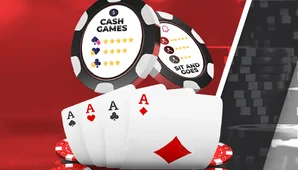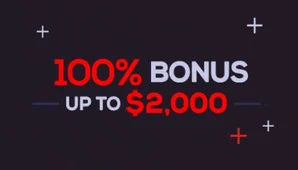In 2014, I lived in Vancouver, Canada.
One evening, Viktor Blom joined me at the $300/$600 PLO tables. Only after a while did I realize how poorly I played back then. He completely dominated and took away pot after pot. I lost a lot of big hands where I called 3-bets, called c-bets, and folded on the turn. I ended that session down $1.1 million.
It is unlikely that anyone can compare to Viktor's ability to quickly win huge amounts of money online. However, he also lost them just as quickly.

Viktor's story began in 2009. At that time there were only 20-25 regulars who played $200/$400 or more. Naturally, the man who appeared out of nowhere aroused great interest. He was never seen at $50/$100 or $100/$200, everyone was trying to figure out who he was and how well he was playing.

After November 2009, when Isildur1 appeared on Full Tilt, online poker was never the same again. In anticipation of the gladiatorial high roller arena and, hopefully, the triumphant return of Isildur to his homeland (after breaking his contract with PokerStars)
We remember how it all began.


I first heard the nickname isildur1 while listening to stories about a young guy who skyrocketed through the limits in European rooms. I was not even registered there. In Europe, no one knew Viktor either, but he immediately began clashing with the best players at the highest limits.

Then, Isildur1 appeared at the Full Tilt high stakes. He had a hyper-aggressive style, and no one had played like that before. The percentage of big pots at his tables was clearly higher than normal.
The regulars who managed to play with him could not come to a common opinion – does he play well or poorly? No one had ever seen a game like this before.
Solvers did not exist then. There were some generally accepted standards that were considered the correct strategy – 3-bet 10%, c-bet 80%, standard sizing. But when someone came along whose game was radically different from ours, we had no factual evidence that his strategy was wrong. The general opinion of the regulars boiled down to the thesis that Viktor plays so-so, but that he increases the variance so much that it is very scary to fight against him.

I spent most of my time at the $100/$200 tables at the time, with occasional shots at $200/$400 and $300/$600 if I was happy with the lineup. That’s why I didn’t start playing with Viktor right away, I spent some time watching how he would perform against others. Before we knew it, he started playing two tables with Antonius, Ivy, and Dwan, and at the same time.
Complete nonsense.
I had no doubt that he would go bankrupt very quickly, and I wouldn’t even have time to play with him. But everything went completely differently. Not only did he not go bankrupt, but, on the contrary, he won millions from the strongest players of that time. The story of his rise in the Eurorooms repeated itself.

Patrick, Phil and Tom were considered the best players of that era. Some unknown guy couldn't tear them apart. Gradually, the opinion about Isildur’s game changed from “a maniac who will quickly lose everything” to “he seems to know something that we don’t even know about.”
The term “game selection” already existed at that time, but we understood it a little differently than we do now. I only paid attention to lineups when I was making shots with a significant portion of my bankroll. I played with everyone at comfortable limits. When I decided that I had enough bankroll reserve to play with Viktor, he and I immediately crossed virtual swords.

During our first session, I didn't feel very comfortable. It seemed to me that he was trying to beat me in every hand, constantly bluffing, sometimes for the entire stack. I started making unusual loose calls, sometimes even guessing right. At first, I didn’t understand how you could play such an aggressive game, but at the same time, maintain some semblance of balance.
When you play with a person who constantly infaltes the pots, it begins to seem that all you have to do is make a combination, and he will immediately give up his stack. This is where gambling psychology kicks in.
Playing with such an opponent is very interesting, but also, scary.
Against nits, the emotions are completely different, and the game turns into a monotonous grind. With Isildur, you can win a huge pot at any time, so I really enjoyed playing with him.

Viktor was not a mindless maniac; in fact, he was a very smart player. It took me a while to understand this. At that time, I paid a lot of attention to the dynamics of the game, my decisions were heavily dependent on what happened in previous hands.
For example, if in the three pots he had just played, he check-raised the flop, then I was sure that with a good hand he would definitely not slowplay, but check-raise again. Viktor knows that I know that he knows and so on... Against most of the regulars at those limits, my approach worked perfectly, in this leveling war I usually came out victorious.
Things didn't go according to plan with Isildur. I was wrong once, twice, then I guessed right, and then I was wrong again three times. He did the same thing as me, only better.

6-max tables with Viktor were easier to play. Sometimes he skipped hands and gave time to rest. You could hide a little and feel more secure about your stack. In heads-up games he didn’t let me relax at all, forcing me to play huge pots all the time.
My most memorable session, not only against Isildur, but in my entire online career, took place in 2009. I was living in New York and we started playing PLO $200/$400 at 7 pm, when it was already night for him.
It wasn't like the usual sessions against Viktor with a lot of streaks in both directions. That day I immediately started winning. When I was up by 10 buy-ins, he suggested going for $300/$600. There I also continued to win, and we moved to $500/$1,000. We finished when I was already at 5 am, and I won $1.6 million. This is the best session of my entire career.
Typically, seven-figure poker wins happen in tournaments when the spotlight is on you, cameras are pointed at you and friends are cheering you on. And I closed the lobby and sat for a while, just staring at the monitor and smiling. Then I quickly had a snack and went to bed.
Very often, you develop mutual respect for your principal rivals and even become friends. Viktor and I only communicated online and quickly became friends. Moreover, I didn’t even know his real name. This was a common occurrence back then. We met many players in the lobby or at 2+2. We all became close, but knew each other only by nicknames.
For some reason, it was very important for many to find out Isildur’s real name. And it was completely uninteresting to me. I already knew who he was – a young guy with whom I constantly fight online. Well, he will tell me his name, which I have never heard before in my life. What will change?

We first met in person a few years later in Vegas at the World Series. This happened at the Lemongrass restaurant in Aria.
Isildur turned out to be a very tall and friendly young man. We immediately found a common language. The only inconvenience was that when communicating with him, I constantly had to lift my head.
It was immediately obvious how much he loved poker. First of all, he started asking me about 2-7 triple draw, at that moment this was my main game. There was a lot of action at high stakes back then, and he was clearly interested in learning a new game that was completely different from Hold'em and Omaha.
Without cards, it was difficult for me to explain some of the subtleties, so we went to my apartment.

I did not immediately try to reveal to him any secrets of strategy, and I did not have the goal of provoking him into action. I just honestly told him the basics of the game. A couple of months later he was already playing the highest limits, and quite well. 2-7 is a very technical game where you need to have a good understanding of math. But he figured it out very quickly only thanks to his intuition and ability to think quickly.
After much persuasion, Viktor agreed to record a joint training video with me for Run it Once. I grabbed a couple of microphones and went to see him in London.

I suspected that it would not be easy, since Viktor is not one who likes to discuss strategy. But, he tried to prepare well, selected a lot of hands that we played with each other, loaded them into the tracker, and wanted us to analyze them together.
But when we started recording the video, it immediately became clear that nothing would work. To all my questions, he limited himself to monosyllabic answers, and I had to guess: “So, in your opinion, here I depicted two pairs, but because of the action on previous streets, I couldn’t have them?” He answered everything: “Yeah.”
I had great hopes for this project and spent several years persuasion. It had to be a hit online, because Viktor never publicly discussed strategy. But it turned out that inside his head he understands what needs to be done, but cannot explain it.
It happens.

It was clear that he was enjoying life in London. I played poker only when I was in the mood. For him it was always fun, not work, like for me. What I didn't know about Viktor is that he is a big movie fan. He had a huge collection of CDs, mostly romantic comedies. Very often he would start his day by going to the cinema, after which he would start the poker tables. This happened twice in the 4 days we spent together.
Few people know that before poker I was a gambler, played blackjack, and bet on sports.
All this went away when I learned to win at poker. At least I thought it was gone. Being around Viktor reawakened my desire to fool around. The sensations were not the most pleasant, although it was very interesting to watch him. When I arrived, he had $150k in his account, with three buy-ins he went to play $200/$400 and $300/$600. He got up to $300k, then lost everything, and had $10k left. So next, he went to play $10/$20. There he won again, but then lost everything. As a result, he had $200 left, which he used to launch two $100 SNGs.
From there, he rose to $25k, but then lost every last cent.

I won’t say that he likes to lose, no one likes that, but the process itself clearly gave him great pleasure. I was lucky enough to watch all this live; I have never seen such a love for gambling in anyone else. He obviously didn't make the smartest financial decisions, but he still had fun and enjoyed the game. He played the $100 HU SNG with the same passion and enjoyment as the $300/$600 two hours before. It was very exciting to watch all this.
Despite his natural poker talent, his weaknesses in other areas took over. He played all the regulars at their best games and never worked on theory. With the development of software, the difference between Viktor and the top regs only increased. He simply had no chance of surviving the high stakes.
During downswings, players move down the limits. Viktor only did this when there were no other options left, that is, when he ran out of money. Sometimes it was already too late.

I don't know all the details. All I know is that he had a downswing online, and then he lost a lot live in Chinese poker, which he didn’t really know how to play. After that, he never recovered.
Now we hardly communicate. Sometimes I ask how he is doing. He replies: “Everything is fine” and adds a smiley face.
I saw how much he loved the game. I think it was not easy for him to get over it. I too am sad that he wasted his undeniable talent. Not everyone can realize their potential and win millions, but it was very interesting for me to compete with him at the tables.
Will there be a new Viktor Blom in poker? I'm sure there won't be. The game has changed a lot, in solver times you can’t go far with talent alone.
Besides, there can only be one Viktor Blom.














